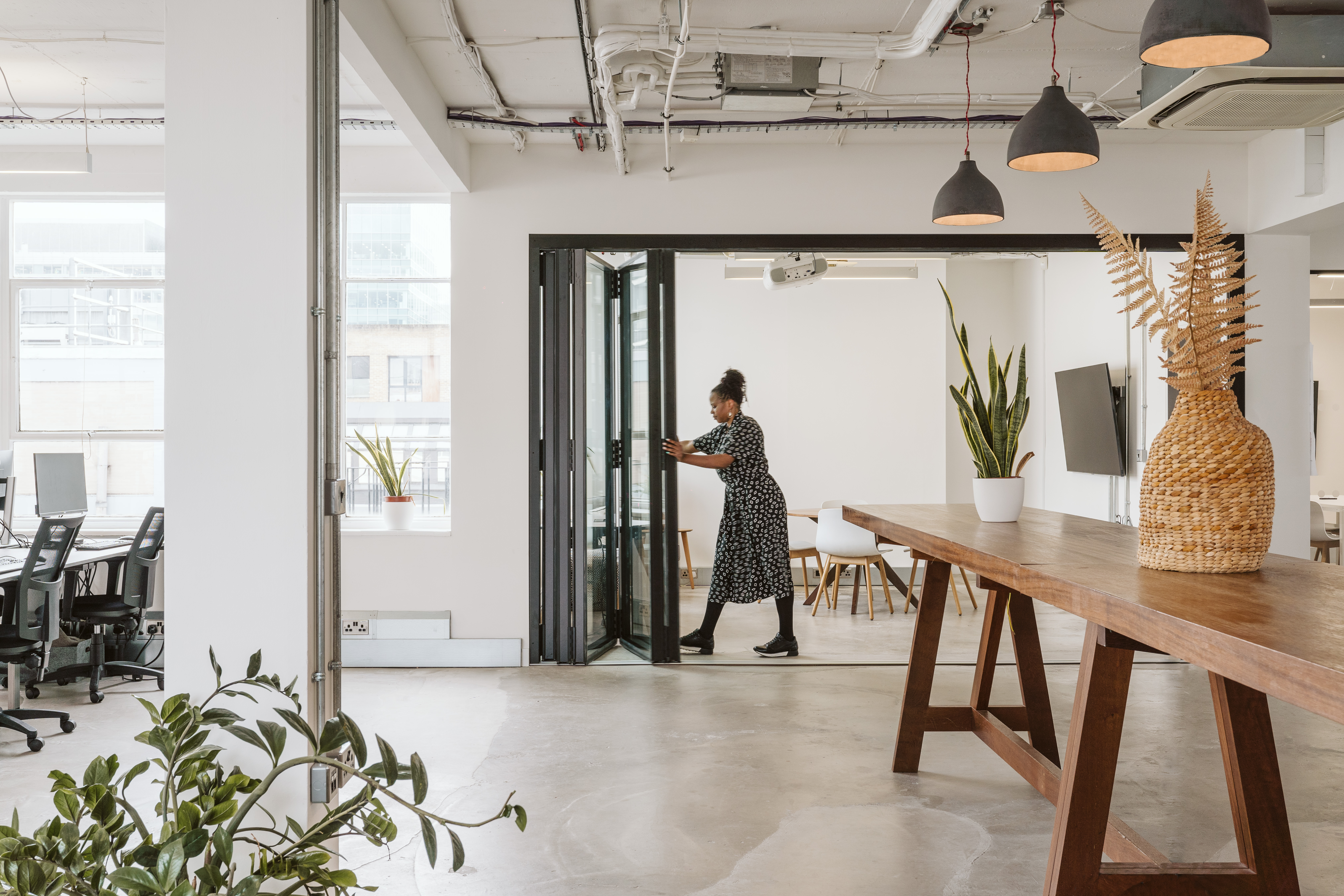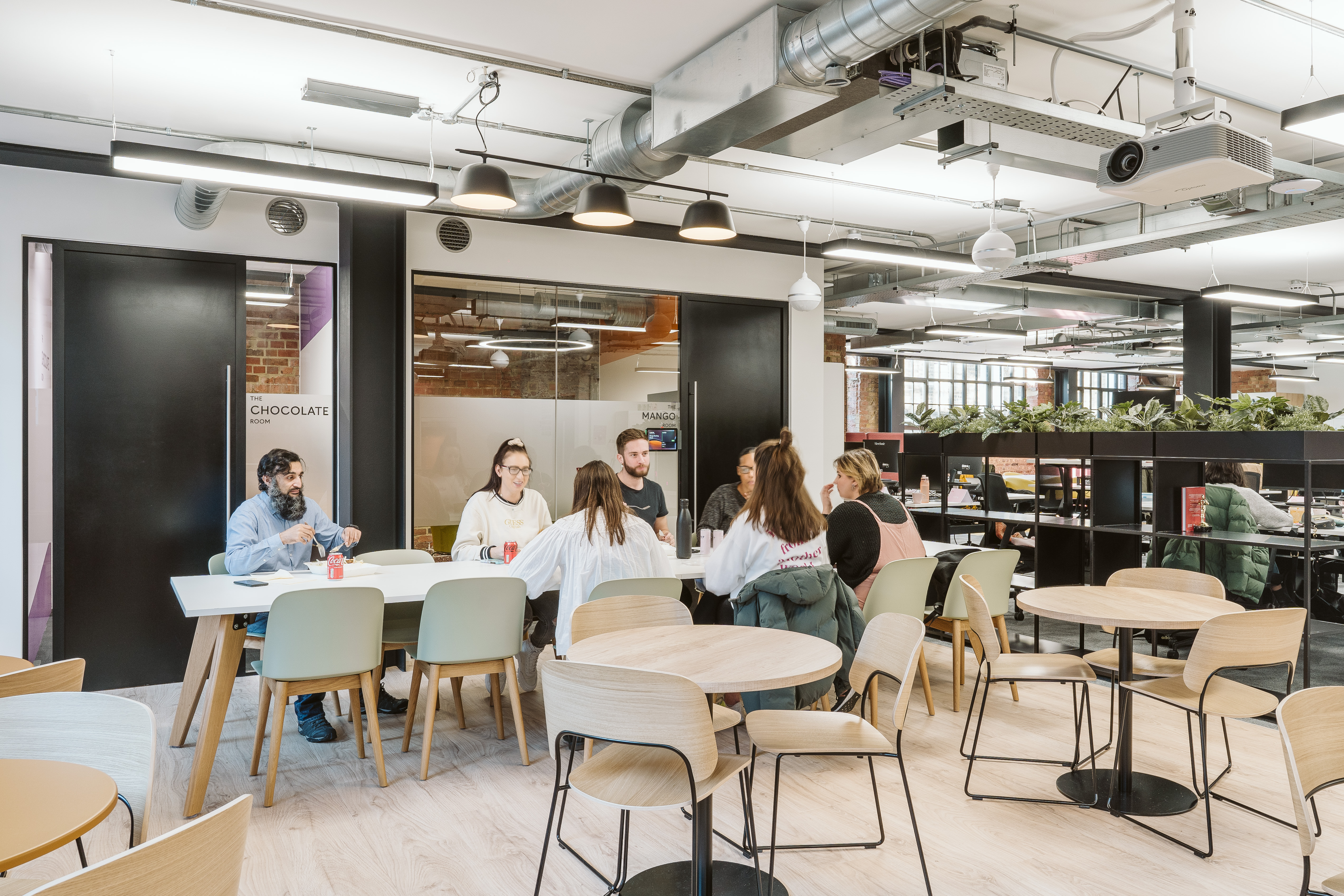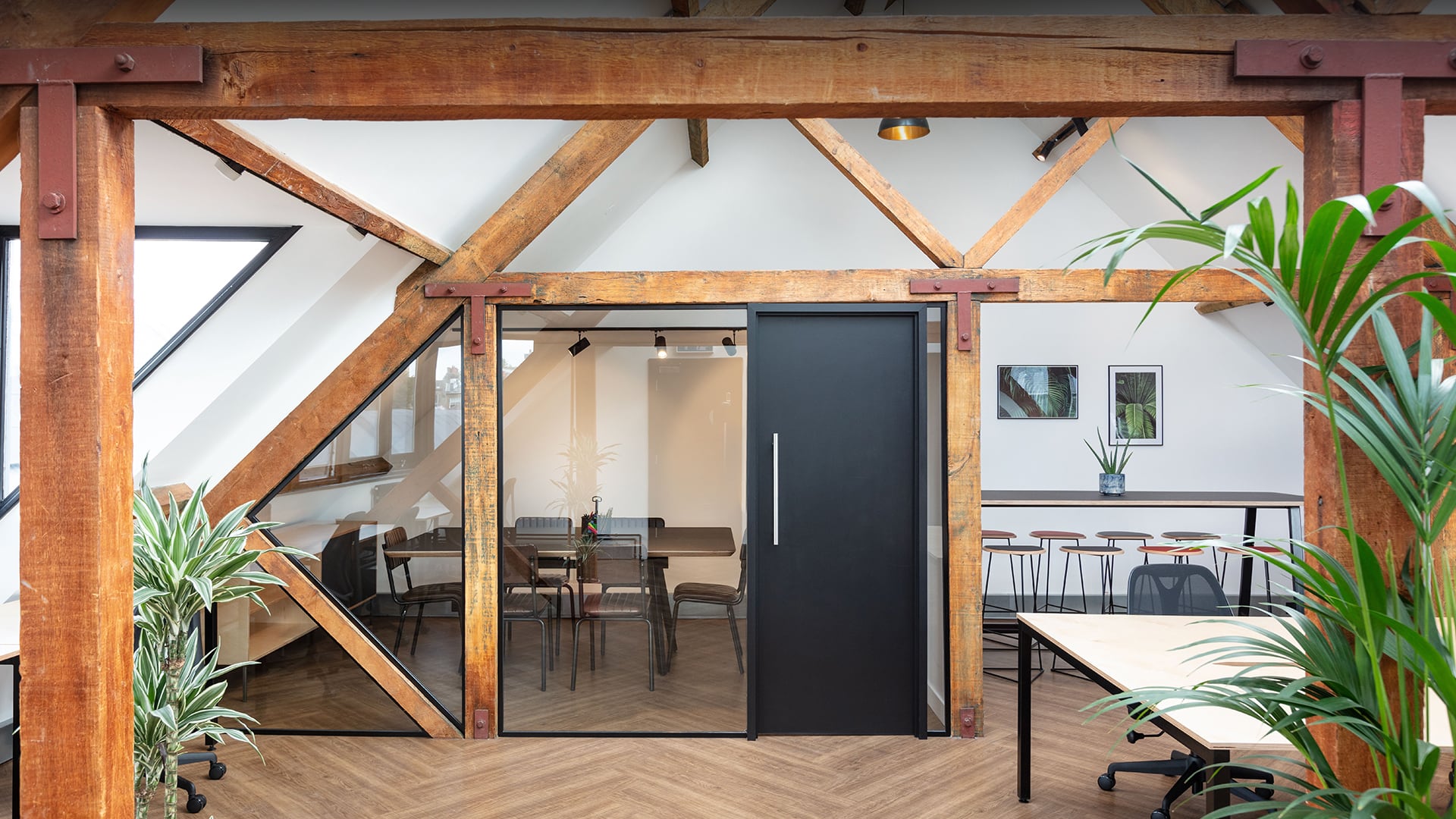What makes a good coworking space design?
The office space landscape has quickly transformed in recent years, with changes in social norms, business priorities and attitudes towards workspaces. This change centres on fostering collaboration and prioritising mental well-being and physical health. Alongside these shifts, coworking spaces have emerged as a notable trend.
What are the differences between coworking and traditional office space?
Traditional offices have a longstanding history, they are workspaces that are typically rented by individual companies and groups. Establishing a traditional office can be complex, requiring meticulous attention to both minor and major details during the setup process.
In contrast, coworking or flexible workspaces operate on a membership basis where professionals from different companies share a work area, promoting networking and community building. The majority of coworking space providers present collaborative environments suitable for both individuals and businesses. Additionally, they provide private, conventional office spaces within the same facility.

Functionality and flexibility: designing for multifunctional use
An essential principle for coworking space design is its emphasis on functionality and flexibility. Given its primary objective of being a shared workspace that accommodates a diverse range of individuals, businesses and organisations, the design must exhibit the ability to effortlessly facilitate movement and conversation.
Additionally, it’s important that the space incorporates modular elements to smoothly facilitate transitions into various multifunctional purposes.
Collaborative spaces: encouraging interaction and community
Coworking spaces stand out by providing members with a community that they can easily connect with. This is where spatial design and the coworking office layout play a huge part.
To enable such connections, designated ‘Collaboration Zones’ should be implemented in the spatial design, this provides an area to incite interaction and help encourage a social attitude.

Comfort and Well-being: creating accessible spaces for all
Ensuring comfort and well-being in coworking spaces should be a top priority. These spaces should be designed to cater to diverse needs, promoting inclusivity and accessibility. Consider ergonomic furniture that supports good posture, adjustable workstations to accommodate different preferences and well-lit areas that reduce eye strain.
Providing accessible amenities, such as gender-neutral restrooms and wheelchair ramps, is essential to make everyone feel welcome and comfortable in coworking environments. Additionally, the inclusion of greenery and natural elements can contribute to a soothing and productive atmosphere.
Technology integration: efficiency and smarter working
Seamless integration of the latest technology is essential for efficient and productive coworking spaces. High-speed internet access is a fundamental requirement, ensuring that members can effortlessly connect and collaborate. The incorporation of smart technology, such as booking systems for meeting rooms and shared resources, enhances convenience.
Coworking spaces can differentiate themselves from the competition by offering tech-friendly amenities like wireless charging stations, video conferencing facilities and robust cybersecurity measures to protect members’ data and privacy.

Sustainable design: building for the future
Sustainability is a key consideration in modern coworking space design. Implementing sustainable practices not only reduces environmental impact but also appeals to environmentally conscious professionals and businesses. Start with energy-efficient lighting, heating and cooling systems to minimise energy consumption. Utilise recycled and locally sourced materials for construction and furnishings. Incorporate waste reduction and recycling programs to minimise the ecological footprint.
You can take it to the next level by considering renewable energy sources such as solar panels and rainwater harvesting systems to promote long-term sustainability. By embracing eco-friendly design principles, coworking spaces can contribute to a greener future while attracting environmentally aware members.
Finding and Designing Office Space with Soul
At Soul Spaces, our mission is to empower you to find the perfect coworking solution that suits your unique needs. Whether you’re an individual seeking an inspiring environment to work in or a team looking to design a bespoke coworking space, we’re here to guide you every step of the way.
Interested in learning about how Soul Spaces could find the perfect perfect coworking solution for you and your team? Get in touch to find out more.






